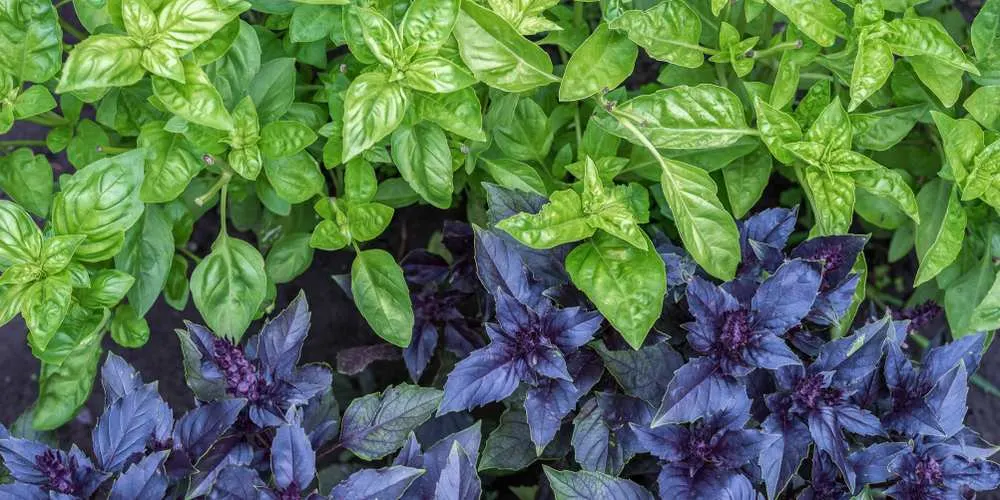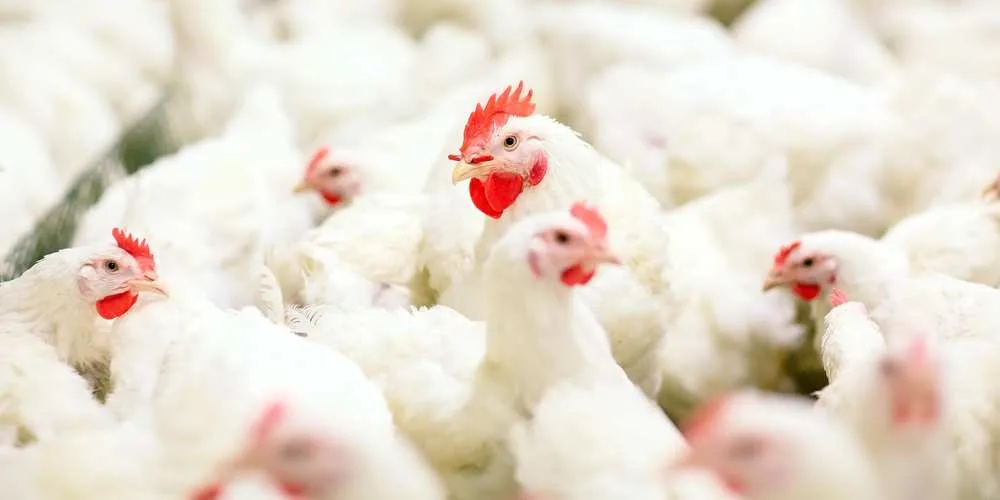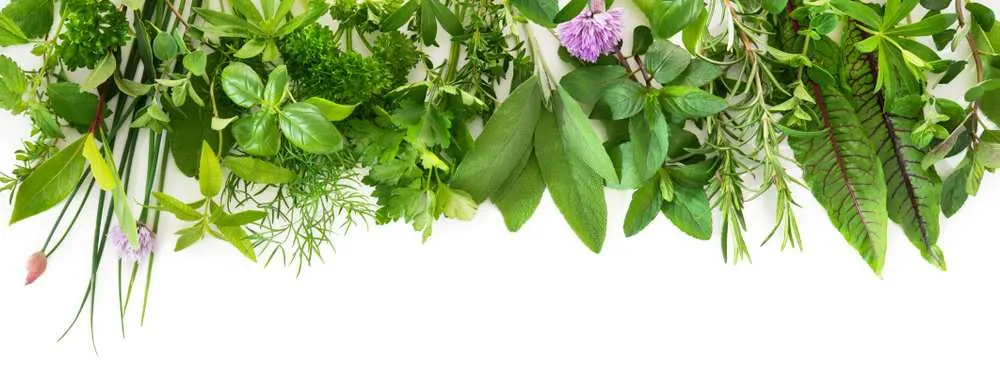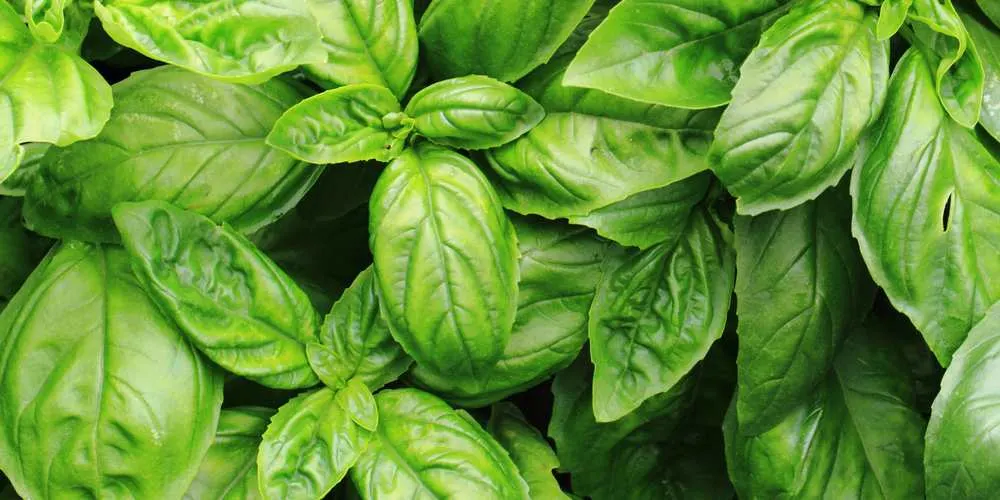Basil is one of the easiest herbs to grow. Humans have been using basil to improve their meals for centuries! Dry or fresh, there’s no doubt that it’s the right choice. However, does that same rule apply to your chickens?
As a responsible chicken owner, you know that good nutrition is essential for maintaining a healthy flock. Well, chickens can eat herbs. But, some greens can be poisonous for them! So, it’s safe to ask, can chickens eat basil?
Well, you’re in the right place! In this article, we’re covering everything you need to know about basil consumption in chickens. Should chickens eat basil, and what good or bad can come from it?
Something like basil can seem harmless and even a great threat to your birds. So let’s get to it and figure this out. Basil – yay or nay?

Can Chickens Eat Basil?
Glad you asked – absolutely! Basil is great for chickens. They happily consume basil, and they even have some benefits from it. Just like humans, birds have been observed gathering various herbs for their nests.
This leafy green originated from Africa and Asia. Basil is from the mint family, and it’s used in cuisines all around the world. Although it’s most famous as a seasoning, it’s also used as a very healthy tea in some cultures.
There are a lot of types of basil! The most widely known is sweet basil, which is commonly sold in supermarkets. Other popular varieties include Greek basil, Thai basil, cinnamon basil, and lettuce basil. The most important thing – all of them are great for your chickens!
Just as the herbs are beneficial to us, they’re just as great for our flocks. Like most herbs, basil is very nutritional. This nutritionally dense herb provides loads of benefits for your chicken. Before we go through the advantages, let’s get to know basil better through its nutritional value.
Here’s the nutrient content of only one tablespoon of sweet basil, which is around 2 grams.
| Fresh Basil Leaves | Dried Basil Leaves | |
|---|---|---|
| Calories | 0.6 | 5 |
| Vitamin A | 3 % of the RDI | 4 % of the RDI |
| Vitamin K | 13 % of the RDI | 43 % of the RDI |
| Calcium | 0.5 % of the RDI | 4 % of the RDI |
| Iron | 0.5 % of the RDI | 5 % of the RDI |
| Manganese | 1.5 % of the RDI | 3 % of the RDI |
As you can see, just a little bit of basil goes a long way! Basil is an excellent source of protein. It’s rich in Vitamin A, Vitamin K, and iron.
Plus, most of these nutrients are in relation to the recommended daily intake for humans! You can imagine how remarkable these numbers are in terms of chicken needs.
Although you probably didn’t think of giving your chicken dried basil, it’s not a bad idea. Just like you noticed, dried basil is more concentrated in nutrients. So, with no remorse, you can sprinkle some dry basil on their regular meal!
Even if commercial foods are packed with everything a chicken needs, the addition of natural herbs is a great plus. Not only that, you’re ensuring their optimal health, your chicken is going to lay better eggs.
Speaking of eggs! Basil causes the yolk’s color to be brighter! This leafy green contains a compound named xanthophyll. Because consumers prefer more yellow yolks, breeders usually give egg-laying chickens this compound.
Not only that it makes the yolks brighter, but xanthophyll is also known to help with respiratory issues. Although it seems odd, chickens are also prone to respiratory problems. That’s one of the reasons why basil is an excellent herb for them. Here are some more!

Health Benefits
Now that you know the main things about the nutrients in basil, we’re ready to cover the health benefits! As we mentioned numerous times, basil is great for humans and their chicken friends.
This nutrient-dense leafy herb contains many minerals and vitamins. Some of them include antioxidants like beta-carotene, lutein, zeaxanthin, and beta-cryptoxanthin. Most of the basil health benefits originate from these antioxidants and essential oils.
Based on the nutritional value in the previous chapter, it seemed like dried basil is a healthier option. While both of the versions are great, essential oils and antioxidants mostly disappear during the drying process.
Depending on what your chicken needs, both dried and fresh basil have their advantages! You can simply chop up some fresh basil leaves and add them to their feeders, or you can sprinkle some dried basil on their regular food. Whatever floats your boat!
Among the numerous benefits that both dry and fresh basil offer, two main benefits stick out. First, basil leaves support a robust immune system, and second – it improves digestion!
As you probably know, those are the two main things that are crucial for a healthy chicken. Besides that, basil also has antibacterial properties. Fresh, chopped-up basil in their nest box will keep your chickens home cleaner!
Basil is generally great for your chickens’ environment. Not only that your chicken boxes will be at the height of their hygiene, but basil is also an excellent insect repellent. If you have a problem with annoying flies, fresh basil will do the trick!
If you want to be extra for your chicks, you can make them a superfood treat. Mix up basil leaves with cinnamon, thyme, and clover – and your chicken will be happy, with a significant immunity boost.

Other Herbs
Basil is just one of many herbs that can do wonders for your hen’s well-being. Leafy greens are generally easy to maintain. They are not demanding plants, and even inexperienced gardeners can grow them.
The list for chicken-friendly herbs is long, so we’re going to cover just the best for them!
Mint
Just like we said before, basil is from the mint family. Thus, as marvelous as basil is, mint can do wonders too! This easy-to-grow plant has a cooling effect. So in the summertime, you can add some mint to your flock’s water and make them a refreshing drink.
The strong scent of mint has an anti-stress effect on hens. Plus, it also acts as a repellent because insects hate it! There are many varieties of mint. Although peppermint is the most popular, spearmint, lemon balm, and catnip are also good choices.
Thyme
Thyme is a herbal antibiotic. This aromatic herb is excellent for battling respiratory infections, which flocks are prone to. Chickens love to pick on this herb. You can give it dry or fresh! And if you have some growing in your garden, maybe your chicks will even dust bathe in it.
Lavender
When calm and peace comes up to mind, lavender is the first association. This lovely-smelling herb has a relaxing effect on hens. Adding some to their nests can make them feel safe to lay eggs.
Lavender is also great for the chickens’ circulatory system. That is excellent news for hens that don’t have much activity! You can add dried lavender to your chicks feeders, or you can just hang lavender in their nests. Give your flocks a lavender spa day!
Ginger
Ginger is well-known for its beneficial effect on humans. Good news, it’s just as good to your flocks! Ginger can do miracles for our feathered friends. This plant is an appetite stimulant, a stress-reducer, and an antioxidant.
Toxic Herbs
Luckily, the list of toxic herbs for flocks is not long. However, you should keep in mind some popular ones, so you don’t end up giving them to your chicks.
List for some poisonous herbs for chickens:
- Aloe Vera
- Bitter orange
- Comfrey
- Eucalyptus
- Pennyroyal
- Tea tree
All of these herbs can be very harmful to chickens. Although pennyroyal comes from the mint family, it’s toxic to hens. Many health risks of these herbs include diarrhea, liver failure, heart attack, stroke, or even death in some cases.

Final Words
We hope that we managed to provide you with the information you needed. To sum everything up: most herbs generally are suitable for flocks. Basil is on the “good” herb list.
This easy-to-grow herb can do wonders for your feathered friend. Dry or fresh, it provides loads of nutrients and health benefits. Plus, it can even repel insects and keep their homes fresh! On top of that, giving basil to chickens can even result in brighter yolks.
However, we know that you’re here for the well-being of your chick and not for the eggs. So to conclude, your chicken will be healthy and happy with some basil in their lives!


